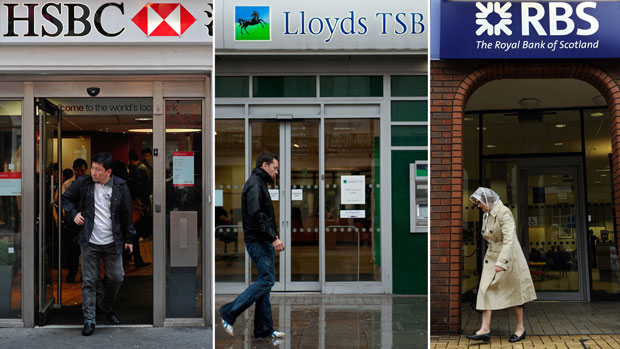How will the UK bank ring-fence work?
Recent concessions on transfers from retail banks and cross-selling have been welcomed by the sector

A free daily email with the biggest news stories of the day – and the best features from TheWeek.com
You are now subscribed
Your newsletter sign-up was successful
After the financial crisis of 2008, the government set up a committee which in 2011 recommended tough new rules in the hope of staving off future banking collapses. Key to this is 'ring-fencing', the separation of deposit-holding retail banking from so-calling 'casino' investment banking.
What is bank ring-fencing?
The Prudential Regulation Authority (PRA) wants the big banks to split their investment arms from their retail business. This means “the separation of their riskier ‘casino banking’ activities from the retail side that looks after your and my money,” says Martin Waller in The Times.
The Week
Escape your echo chamber. Get the facts behind the news, plus analysis from multiple perspectives.

Sign up for The Week's Free Newsletters
From our morning news briefing to a weekly Good News Newsletter, get the best of The Week delivered directly to your inbox.
From our morning news briefing to a weekly Good News Newsletter, get the best of The Week delivered directly to your inbox.
The idea is that by putting a ring-fence around retail operations, the high street banking that customers rely on will become safer. This in turn will prevent there being a run on a bank as happened with Northern Rock - and so prevent taxpayers having to step in.
“Even if the bank does crash, the new rules should make it easier for the Bank of England to let investment banking operations collapse, but keep the retail bank running,” says Tim Wallace in The Telegraph.
The ring-fencing will mean that the retail side of the bank – that’s the part that handles current accounts, savings accounts, mortgages, credit cards and loans – must not be too reliant on the investment bank part of the company for revenues. The retail arm will also have to have large capital buffers to protect it from financial uncertainty.
The rules aren’t scheduled to come into force until 2019.
A free daily email with the biggest news stories of the day – and the best features from TheWeek.com
Is it likely to work?
“In theory, it means the government will never have to bail out a lender with a big investment bank like Royal Bank of Scotland ever again,” says Wallace. “But of course the real test will come at a time when financial markets are panicking.”
Are the rules too harsh?
When the ring-fencing idea was initially announced many big banks reacted with horror. There were concerns that the changes needed would cost a fortune and some banks have complained that the ring-fencing “puts them at a competitive disadvantage to their overseas rivals,” says Caroline Binham in the Financial Times.
However, this month the PRA has announced some concessions that have led to a collective sigh of relief amongst the banks. Firstly, it has stated that banks will be able to distribute profits from their retail operations to other parts of the group - as long as the retail bank retains ‘sufficient capital’.
This “so-called ‘transferability’ will allow bundles of cash to be thrown over the ring-fence to prop-up any parts of the business that are loss-making,” says Waller.
Secondly, the ring-fenced banks will be able to transact with other parts of the group, as long as they are treated on the same terms as any other third-party would be. This means banks will be able to cross-sell products and lend money across divisions.
“Following some lobbying, the PRA is being nowhere near as draconian as some of the industry had feared,” says Investors Chronicle.
Why are the rules being toned down?
First of all, good old politics is at play. “The U-turn is the latest in a series of emollient moves to banks since the Tories’ victory in May’s general election and since HSBC and Standard Chartered threatened to move their headquarters overseas in response to proposals to stiffen regulation,” says Binham.
The other issue is the government’s imminent sale of the bulk of its holding in Royal Bank of Scotland and many of its Lloyds shares too. “A cynic might interject that… now is not a great time to undermine the sector’s stock market valuation,” says Waller.
The regulators are also trying to tread a fine line between making retail banking more secure for UK consumers and allowing the banks to remain competitive on a global scale.
“The government has got a difficult line to take on this – part of why London is such a significant global financial sector is that we take a lead on financial regulation… [you have got] to be able to judge what is taking a sensible lead and what is over-enthusiastic,” says Mark Garnier, a Conservative MP on the Treasury select committee, in the Financial Times.